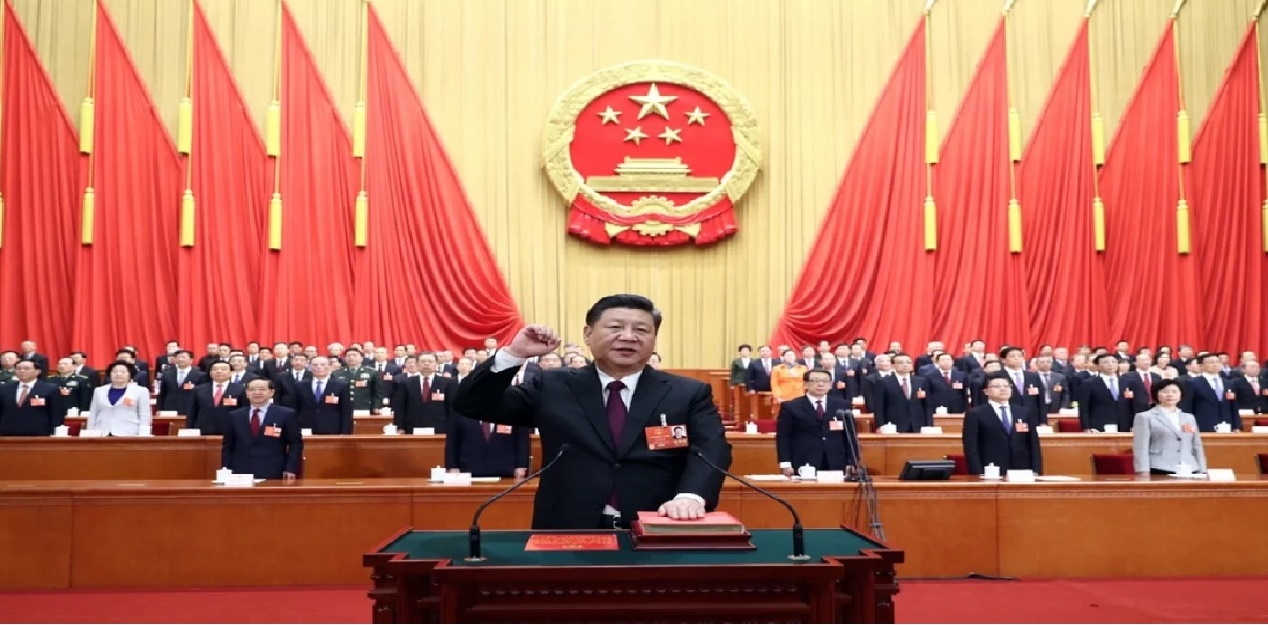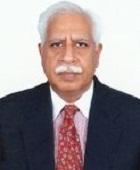China is making efforts to arrest the slide in US-China relations and lower temperatures after Joe Biden takes over as President on January 20. In addition to Chinese Politburo member and former Foreign Minister Yang Jiechi’s plans for visiting Washington this week, a Chinese trade delegation is likely to travel to the US shortly. Confirming that China will use all the levers it possibly can, Chinese President Xi Jinping on January 6 wrote to Howard Schultz, Honorary Chairman of the Board of Directors of Starbucks Corporation of the United States, emphasising that China "will provide a broader space for companies from all over the world, including Starbucks and other American companies, to develop in China". He hoped "that Starbucks will make active efforts to promote Sino-US economic and trade cooperation and the development of bilateral relations". Well informed Chinese academics have separately spoken recently of using their influence with some of the big corporations and prominent figures, including on the Wall Street, to influence the new Biden Administration.
Meanwhile, China has further strengthened what it calls its "magic weapon" -- the United Front Work Department (UFWD) of the Chinese Communist Party (CCP)'s Central Committee (CC). The UFWD has not only stepped up influence operations in the past couple of years, but the CCP CC has just this month issued revised rules for the UFWD.
Responsible for intelligence and influence operations, establishing and maintaining contacts with non-Party and foreign entities, and China's ethnic minority nationalities, the United Front functions in China and abroad. It has played a crucial role for the CCP especially during the years it was struggling to capture power and become China's sole ruling party. Many of the CCP's founding and early cadres used a nom de guerre and worked "underground" for the Party's cause for many years. Many chose to retain these names long after the CCP became China's ruling party and died without disclosing their real names. In some cases the real names were revealed only when their obituaries were published!
After a period of dormancy during the Cultural Revolution and reign of the Gang of Four when China withdrew and became inward looking, Deng Xiaoping revived the United Front. Always a shadowy but important arm of the CCP CC, the UFWD got re-energised in recent years with Xi Jinping’s ascent to power. After he took over as head of the central leading small group on united front work and later the new foreign affairs commission in 2017, Xi Jinping doubled the budgets and personnel strength of China's Ministry of Foreign Affairs and the CCP CC’s UFWD. A recent report funded by the Netherlands Ministry of Foreign Affairs disclosed that the UFWD presently has more than 600 senior bureaucrats and half a dozen Ministers, which makes it equivalent in strength to many Ministries put together. It claimed also that six new bureaus have been added to the UFWD. The six bureaus cover: (i) Xinjiang affairs; (ii) new social strata individuals/urban professionals and elites; (iii) overseas Chinese affairs; (iv) building up and strengthening intelligence and propaganda networks in foreign countries; (v) monitoring and managing religious schools; and (vi) monitoring specific religions within China. The US $6.6 billion allocated for an international propaganda offensive is at the disposal of the UFWD as are the Confucius Institutes set up under China's Ministry of Education in 2014.
Earlier this month on January 5, 2021, the CCP CC issued a circular confirming the revised regulations comprising 14 Chapters and 61 Articles approved at a meeting of the Politburo in November 2020. You Quan, head of the UFWD and member of the 19th CCP Central Committee, stated that these prominently reflect the “Party’s centralized and unified leadership in united front work”. Some of the more important new regulations among the 61 promulgated are listed below.
New chapters include one on "United front work of new social strata" and a chapter on "Overseas United Front Work and Overseas Chinese Affairs Work". The latter emphasised that "we should devote ourselves to maintaining and promoting China's reunification, realising the great rejuvenation of the Chinese nation, enhancing the friendly cooperation and exchanges between the Chinese people and the people of the world, and promoting the building of a community of human destiny."
The Head of the UFWD in an interview with the People's Daily (January 6) explained that the revised regulations had been finalised after getting the views of 20 provinces, autonomous regions and municipalities and "the opinions of the member units of the Central United Front Work Leading Group, relevant departments of the central and state agencies, various provinces, autonomous regions and municipalities, and the United Front Work Department of the Xinjiang Production and Construction Corps" and those "of the head of the Federation of Industry and Commerce and representatives of non-party personages, as well as the heads of the United Front Work Department of some provincial party committees". He described them as of "great significance" and said they "will strengthen the party's centralized and unified leadership over the united front, consolidate and develop the most extensive patriotic united front, and unite efforts to build a modern socialist country and realize the Chinese Dream of the great rejuvenation of the Chinese nation".
Some of the new or more important of the Articles are:
Article 3 - stipulates that the patriotic united front should “comprehensively build a modern socialist country and realize the great rejuvenation of the Chinese nation”… and “achieve the complete reunification of the motherland”. It enumerated eight principles of united front work as:
- Uphold the leadership of the Communist Party of China;
- Persist in holding high the banner of patriotism and socialism;
- Persist in focusing on the ‘center’ and serving the overall situation;
- Persist in great unity and great union;
- Persist in correctly handling the relationship of consistency and diversity;
- Persist in respecting, safeguarding and taking care of the interests of allies;
- Persevering in making friends from outside the party and making deep friendships; and
- Adhere to the work pattern of the grand united front.
Among the twelve specific areas of the united front that were identified, of particular interest are: - Non-public ownership economy persons;
- People from new social classes;
- Those who have gone abroad and returned to study abroad;
- Overseas Chinese, returned overseas Chinese and their relatives;
- Other personnel who need contact and unity.
It clarified that people outside the party, and representatives of the various groups are the targets.
Article 7 - concretised establishment of the Central United Front Work Leading Group under the “leadership of the Political Bureau of the Central Committee and its Standing Committee”.
Article 8 - includes the direction that “the main person in charge of party committees (party groups) at all levels” should be “the first person in charge of the united front work of the local department and unit”. It instructed local party committees to set up a united front work leading group, adding that the group leader should generally be at the same level as the party committee secretary.
Article 10 - directed that there should be united front personnel at all administrative levels down to the township and village, universities and State-owned Enterprises (SoEs).
Article 35 - dealt solely with Taiwan and said the united front would “Continuously promote the process of peaceful reunification of the motherland and realize the great rejuvenation of the Chinese nation with one heart”.
Article 44 - stipulated the number of positions that must be filled by non-Party persons. It said: "Non-Party representatives shall occupy a large proportion in the CPPCC at all levels, with no less than 60% of the members and no less than 65% of the standing committee members; and no less than 50% of the vice-chairmen of the leading groups of the CPPCC at all levels". Significantly, this does not include ethnic autonomous areas. Similar provision was made for its subordinate bodies at lower administrative divisions and the Supreme People’s Procuratorate.
An important backdrop for promulgation of the revised regulations for the United Front is the tension in the Sino-US relationship. While China perceives that with the new Biden Administration it will have a window of opportunity to ease tensions, Beijing is unlikely to offer any substantial compromises. The United Front Work Department can be expected to intensify influence operations to ease tensions with the US. As China steps up its effort for “peaceful reunification of the motherland” and to “realize the great rejuvenation of the Chinese nation”, the United Front will have a larger role and will step up its activities and influence operations in other countries of interest to China. India, Taiwan and countries with a large number of Tibetans, Uyghurs and overseas Chinese will be prominent among those that witness elevated United Front activity.
(The paper is the author’s individual scholastic articulation. The author certifies that the article/paper is original in content, unpublished and it has not been submitted for publication/web upload elsewhere, and that the facts and figures quoted are duly referenced, as needed, and are believed to be correct). (The paper does not necessarily represent the organisational stance... More >>
Image Source: https://img.i-scmp.com/cdn-cgi/image/fit=contain,width=1098,format=auto/sites/default/files/styles/1200x800/public/images/methode/2018/03/21/6eb7fbfe-2b6f-11e8-aca1-e0fd24c4b573_1280x720_154943.JPG?itok=xIOoqZzu











Post new comment